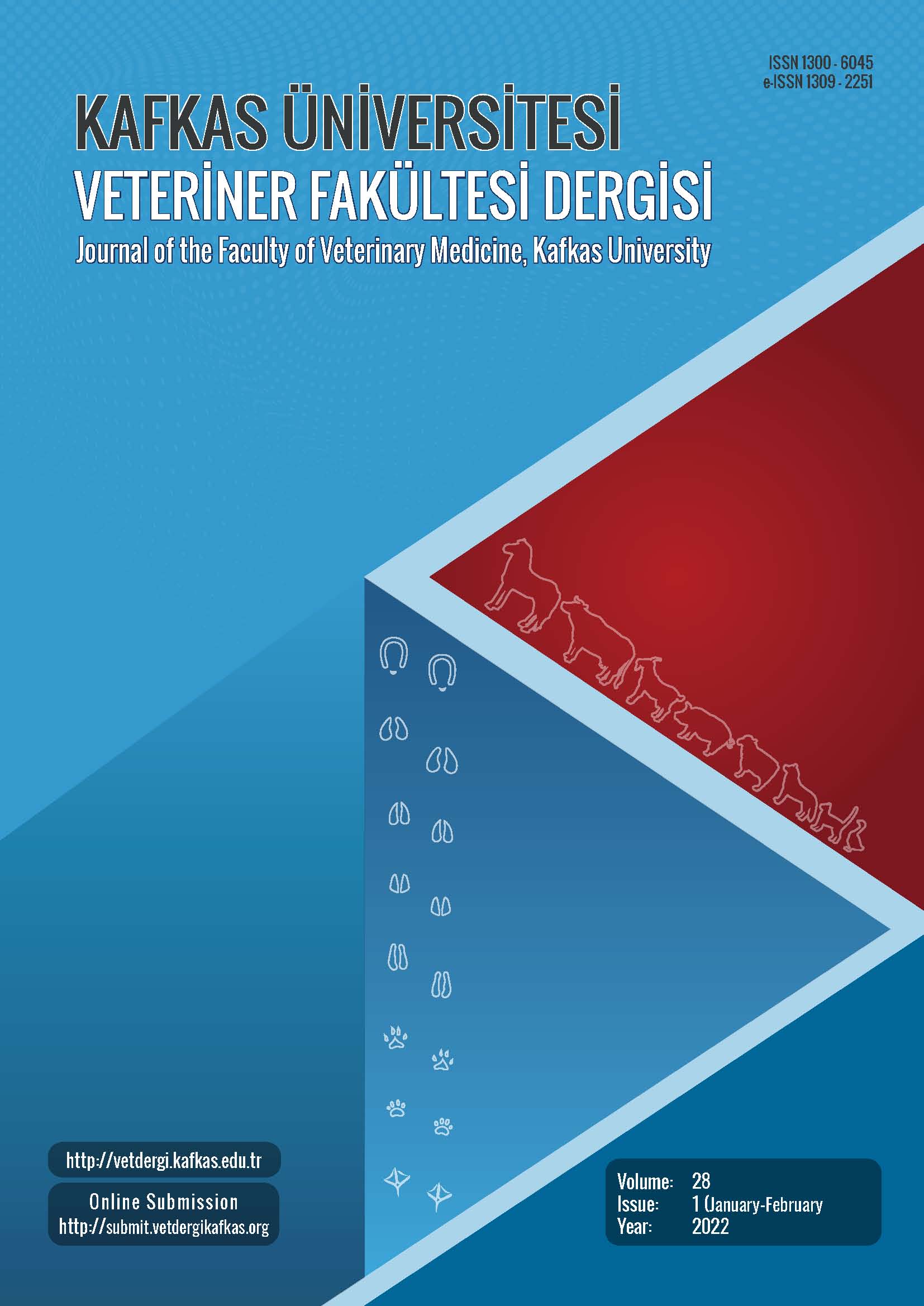
This journal is licensed under a Creative Commons Attribution-NonCommercial 4.0 International License
Kafkas Üniversitesi Veteriner Fakültesi Dergisi
2022 , Vol 28 , Issue 1
Role of Dietary Supplementation with Plant Origin Carotenoids (Curcumin and Lutein) for the Control of Eimeria-Challenged Broiler Chickens
1College of Animal Science and Technology, Key Laboratory of Meat Processing and Qua lity Control, Nanjing Agricultural University, Nanjing 210095, P. R. CHINA2Faculty of Animal Husbandry & Veterinary Sciences, Sindh Agriculture University Tandojam, Sindh, PAKISTAN
3Department of Meat Science and Technology, Faculty of Animal Production & Technology, University of Veterinary and Animal Sciences, Lahore, PAKISTAN
4Department of Animal Nutrition, Faculty of Veterinary & Animal Sciences, The Islamia University of Bahawalpur, 63100 PAKISTAN DOI : 10.9775/kvfd.2021.26402 The influence of anti-coccidial naturally occurring plant origin carotenoids (curcumin and lutein) in Eimeria-challenged broiler chicks were tested. A total of 200, day-old commercial Arbor Acres chicks were reared for 42 days. The chicks were weighed individually and randomly assigned into equally 4 treatment groups having 5 replicates. Chicks of control group T0 were raised on a basal diet with no supplement. The chicks of group T1, T2 and T3 were supplemented with curcumin 300 mg/kg, lutein 300 mg/kg, and curcumin plus lutein 150 mg each with per kg of feed, respectively. On day 21 all the chicks were challenged with Eimeria maxima. The findings of this study revealed that among all the groups feed intake, body weight gain and feed efficiency remained statistically unchanged (P>0.05). A significantly higher (P<0.05) liver and spleen weights were observed in the T0 group as compared to the birds fed lutein supplemented diets whilst the bursa and thymus remained statistically alike and the same trend was observed for bloody diarrhea, intestinal lesion scores except for the oocyte count which was significantly lower in the T3 group. On day 20, T3 dietary groups exhibited numerically increased antibody titers against Newcastle disease virus (NDV) and Avian influenza virus (AIV), additionally T3 also exhibited the same trend on day 30. The serum malondialdehyde (MDA) and aspartate aminotransferase (AST) levels were at a lower rate in the T3 group while the liver MDA was statistically lower in the T1 (P<0.05) group as compared to other groups. The alanine aminotransferase (ALT) remained unchanged within the groups. Compared to T0 (control), all the carotenoid supplemented groups exhibited increased (P>0.05) shank color and skin b* value (yellowness). Our conclusion showed that application of curcumin single or in combination with lutein may promote skin pigmentation, lowered liver injury, and exhibit a better anti-coccidial impact. Keywords : Broilers, Carotenoids, Curcumin, Lutein, Eimeria, Feed efficiency










